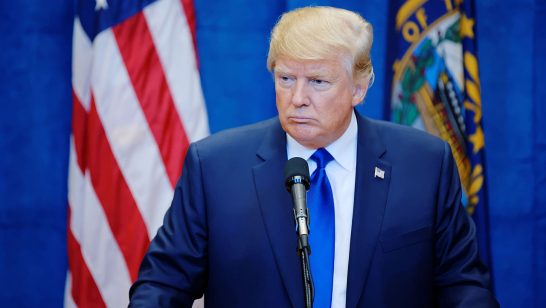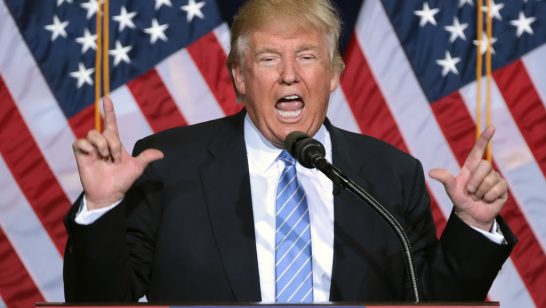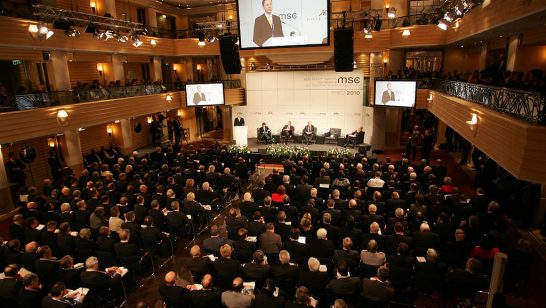
On January 20th, 2017, Donald Trump officially became the 45th President of the United States of America. A lot of people in Russia, including those in power (government officials, members of parliament, etc.) express hope that he will change the U.S. policy towards Moscow, widely considered as anti-Russian. The main question is: are these hopes justified?
Answering this question I must say that we are certainly deluding ourselves that relations with our country were the central plank of Mr.Trump’s entire campaign, and that Russia is always at the forefront of the President’s mind. Assessing his personality we must take into consideration two factors. Firstly, he is a pragmatist, albeit outwardly eccentric and fond of punchy soundbites (by the way, those soundbites do not necessarily translate into actual policy). Secondly – he is definitely not Santa Clause, and even if he had a sack full of gifts, those are clearly not meant for Russia.
Nevertheless, I must say that Donald Trump is the lesser of the two evils. Had Hilary Clinton won, the situation would have taken an entirely predictable downward trajectory. The two countries would have continued to sever their remaining bilateral ties. All the existing problems in their relations – i.e. Ukraine, Syria, cyber security, human rights etc. – would still be there, and new ones would surely emerge with the passage of time.
There are many issues where Russia and the United States could and should focus their efforts to reduce the ongoing confrontation. I will mention only three of them which to my mind are of utmost importance for the world’s security.
First, we should aim to work together against international terrorism, first of all against Islamic State. We should stop arguing about which parties in Syria should be regarded as terrorists. Trump has both the opportunity and the need to rise above the nonsensical bickering initiated by his predecessor, define the goals that America shares with Russia, designate common targets and start striking those targets together. After all, international terrorism is the enemy at the gate for both of our countries. It is in our shared interests to strike that enemy down – which is entirely possible if Russia and the United States pool their resources.
Second, we should restart our strategic stability dialogue. In this regard, Dr Alexey Arbatov offers an accurate assessment of the current U.S.-Russia dynamic. As he observes, “after a quarter century pause, Russia and the United States are again on the verge of a massive and multichannel cycle of the arms race.” [1]. He quotes an observation by Professor Robert Legvold that both countries “in modernizing all three legs of their nuclear triads, have reopened a potential competition between offensive and defensive systems and introduced new destabilizing technologies, such as conventionally armed strategic missiles capable of striking the other side’s nuclear weapons, thus blurring the firebreak between conventional and nuclear warfare”. [2]
As Dr Arbatov adds “Besides the political split over Ukraine and disagreements over ballistic missile defenses and conventional global hypersonic systems The clash of positions over the conflicts in Ukraine and Syria and the divergence of views over ballistic missile defense and conventional hypersonic systems, the two states are now deeply divided in their fundamental views on the role of nuclear weapons, assessments of strategic balance, and perceptions of possible causes of war. These contradictions and their origins should be understood by both powers. Russia and the United States should make an effort to forge a common, up-to-date understanding of strategic stability and enhance it by arms control provisions and through regular military and civilian contacts.” [3]
He continues “Weapon systems that threaten the survivability of each other’s strategic forces, and command, control, communications, and intelligence assets imply a first strike strategy and provoke pre-emption. While undertaking phased reduction of nuclear forces, both sides should reach agreements to alleviate mutual concerns about prompt and slow counterforce systems, even if those are designed against other opponents. Expanding defensive systems to reduce each side’s vulnerability to “rogue states“ should only be based on US – Russian agreements. Systems and concepts blurring the line between nuclear and conventional operations are inherently destabilizing and should be subjected to limitations and confidence-building measures. There must be a mutual understanding that any use of nuclear weapons, however limited, is escalatory and should be excluded from bilateral strategic relations”. [4]
Third, Russia and the United States should do their utmost to prevent the spread of nuclear weapons. A solid foundation for efforts in this area already exists, namely the Nuclear Non-Proliferation Treaty. Almost fifty years have passed since its coming into force. Many milestones have come and gone since 1968, but the NPT is still alive and bearing fruit (suffice to recall the recent diplomatic taming of the Iranian nuclear program). Nevertheless, a new Cold War between Russia and the West could lead to cracks appearing on the treaty’s foundation. Nuclear proliferation is equally dangerous for both of our countries. Trump and Putin should pool their efforts to keep the NPT afloat.
****
[1] See Dr Alexey Arbatov’s article in Arms Control Today from September 2016. Page 24. Dr Arbatov is the head of the Center for International Security at the Russian Academy of Sciences’ Institute of World Economy and International Relations and head of the Nonproliferation Program at Carnegie Endowment for International Peace’s Moscow Center.
[2] Ibid and Robert Legvold, Return to Cold War (Cambridge, UK: Polity, 2016), p.132.
[3] Arbatov Ibid
[4] Ibid.
The opinions articulated above represent the views of the author(s), and do not necessarily reflect the position of the European Leadership Network or any of its members. The ELN’s aim is to encourage debates that will help develop Europe’s capacity to address the pressing foreign, defence, and security challenges of our time.



